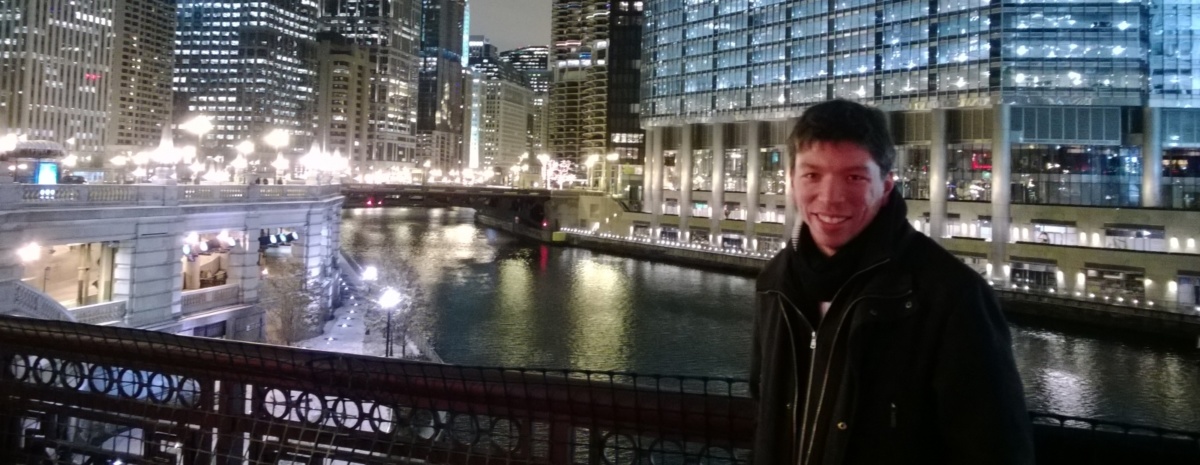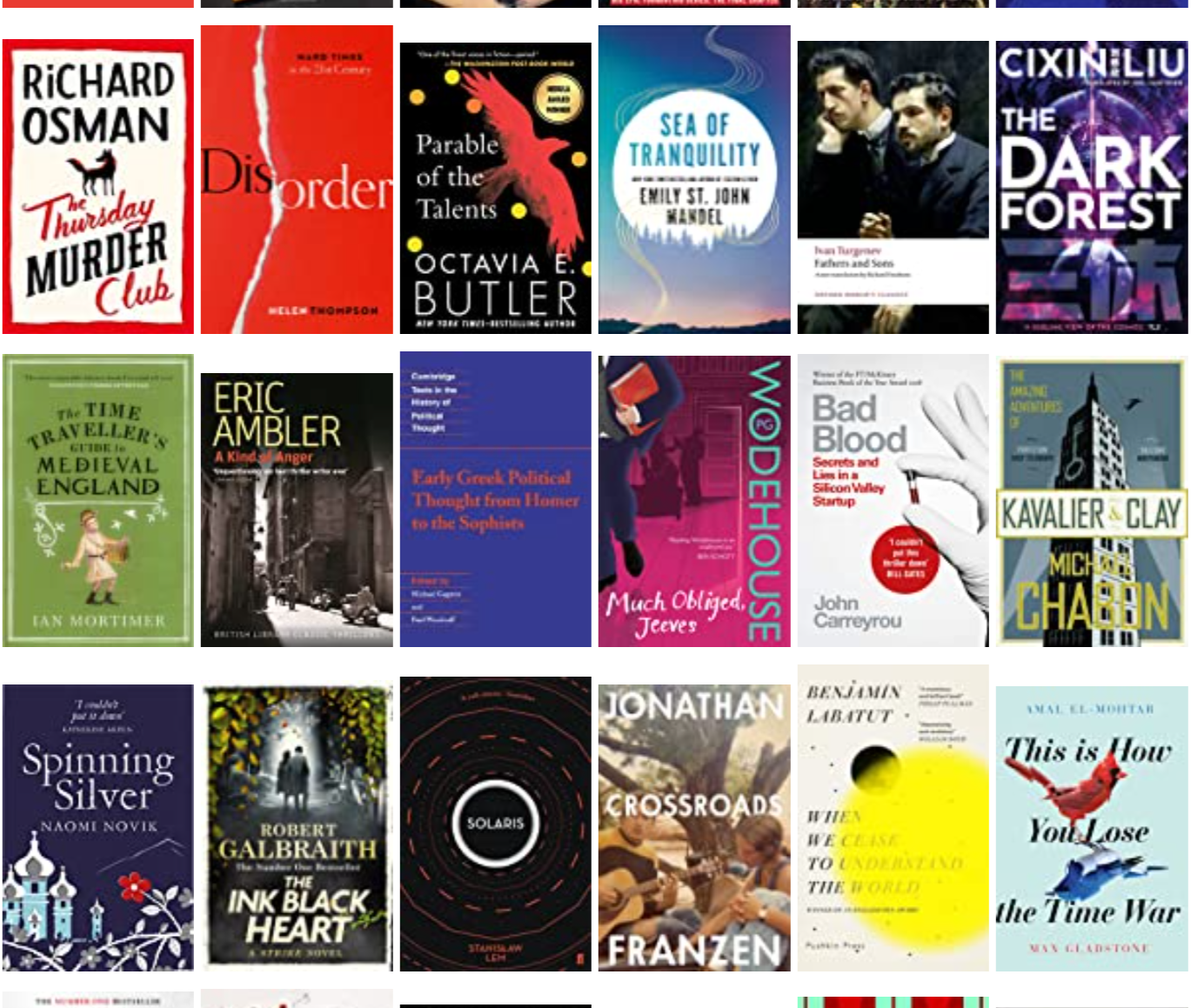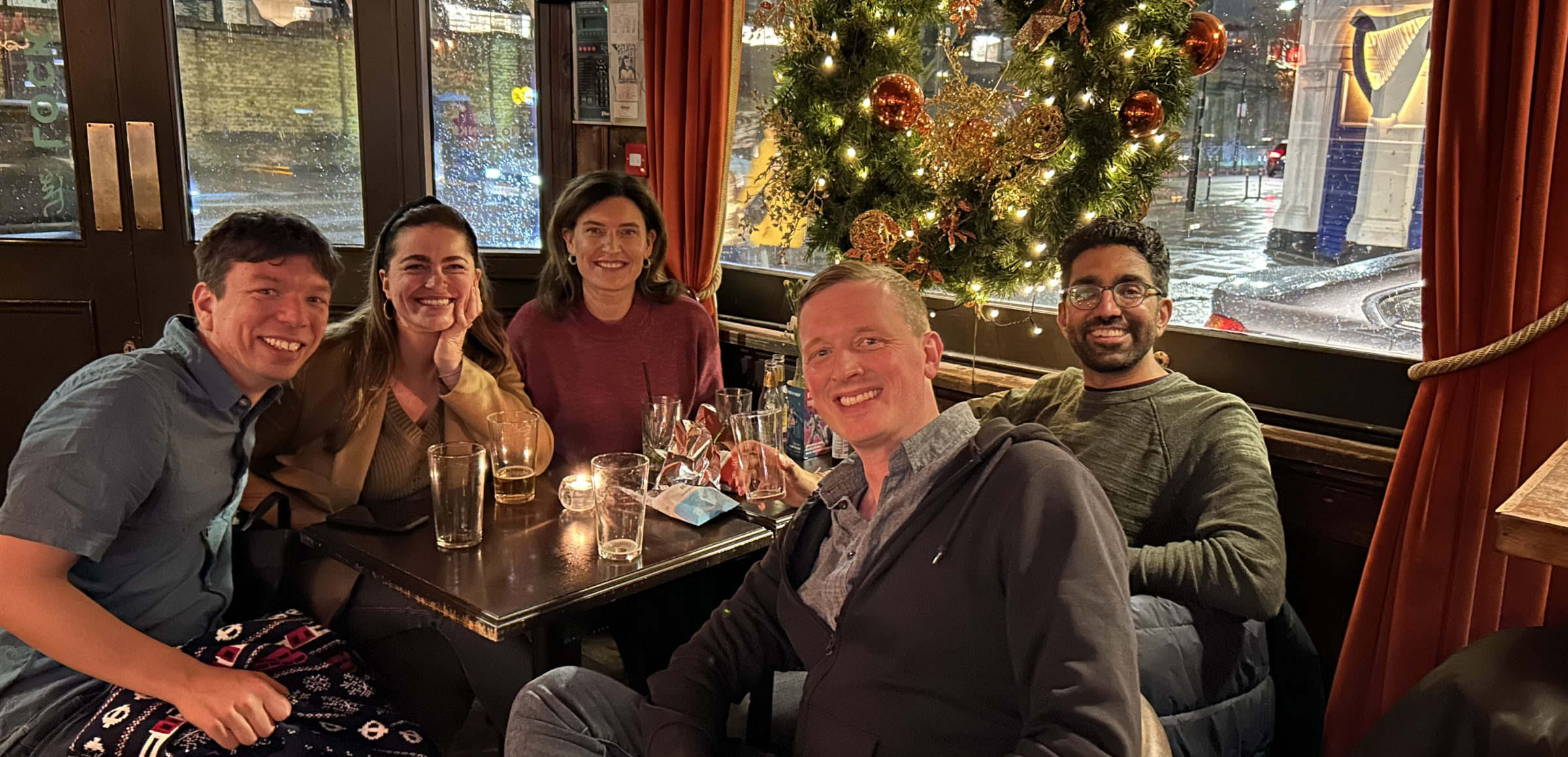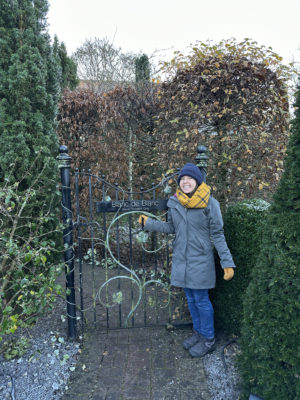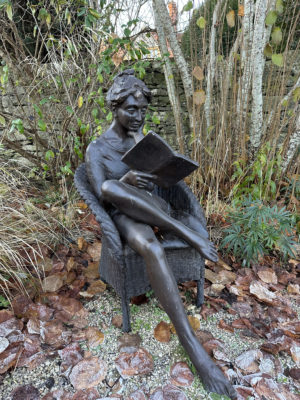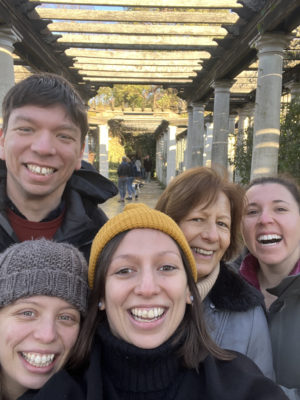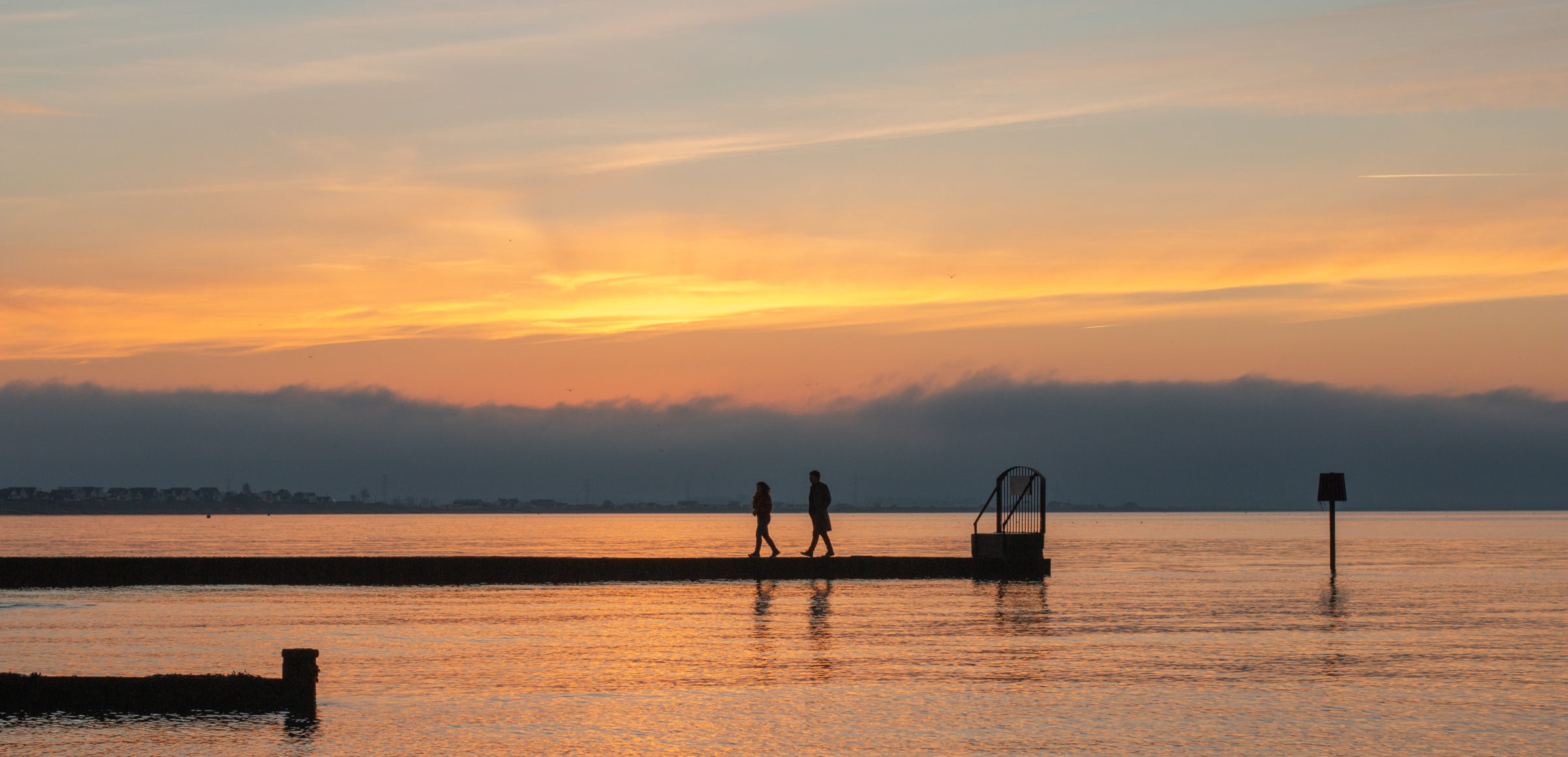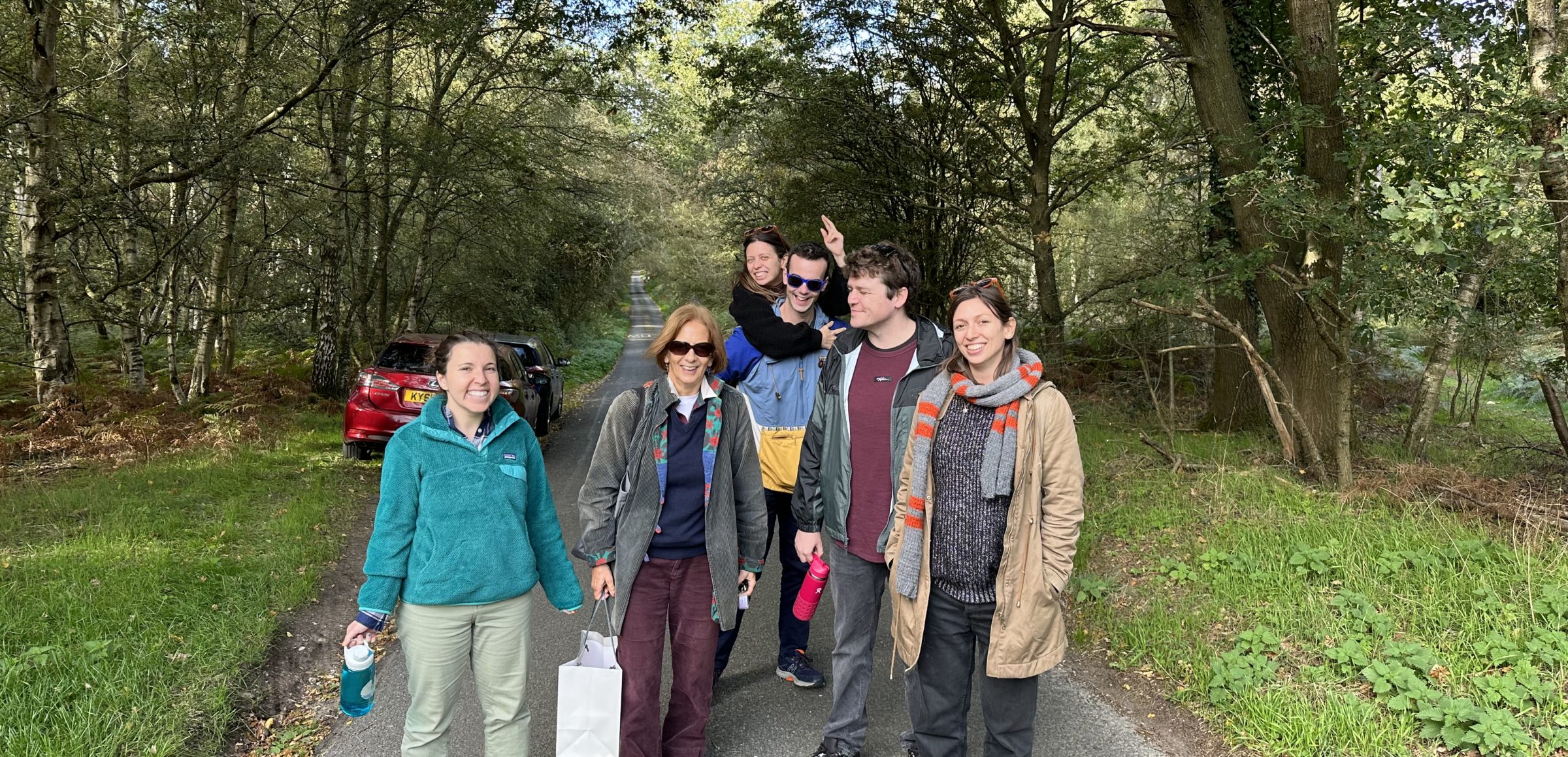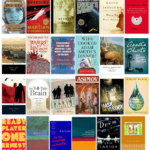Finally: a (very slight) reversal in fortunes for my reading total! This year I managed 30 books, up from 29 in 2021, and the only thing it cost me was my peace of mind after spending New Year’s Eve immersed in a claustrophobic Gothic thriller. But more on that later…
Fiction
It may be a self-fulfilling prophecy, but once again the first book I read this year – Fatherland, by Robert Harris – turned out to be one of my favourites. First published in 1992, this was Harris’s debut novel and the one which made him famous, no doubt driven by our perpetual collective fascination with Nazi history. Fatherland is a classic of alternative history, set during the 1960s in a victorious Nazi Germany which diverged from our own timeline after 1942. The use of real people and events from our common history until that point makes this imagined world feel chillingly familiar, and the story itself is a captivating detective thriller which, at its heart, is more interested in unearthing the (real) events of the Wannsee Conference than solving a totally fictional mystery.
While my first Robert Harris novel was a hit, my first Jennifer Egan novel – Manhattan Beach – was more of a miss. Indeed, Todd and Carolyn were surprised that this was the one I picked to read, and the book’s promised intrigue was never really parlayed into a strong emotional connection to the characters. For me, the most moving section was when Anna – the first female diver at the Brooklyn Navy Yard – dives successfully for the first time. I had similarly mixed views about The Poisonwood Bible, Barbara Kingsolver’s book about an American missionary family living in the Congo. The fact that the four daughters are a little too cleanly well-defined, bordering on caricatures, made the story easy to follow but less good than it could have been. It also felt like the climax arrives prematurely, with the family’s great disaster and subsequent exodus concluding long before the final page.
One book I did love in 2021 was The Three-Body Problem, and the second book in the trilogy – The Dark Forest – was also incredibly good. I found it slower to get into at first – it took me a month to finish! – but overall Liu Cixin avoids the classic middle-book problem by adding an impressive cocktail of new ideas and concepts. Quick summary: faced with a slow-moving but overpowering invasion force, humanity devises the Wallfacer Project to give four individuals (‘Wallfacers’) incredible unchecked power to work on secret counter-strategies. Added to this are ‘Wallbreaker’ opponents, hibernation into the future and – ultimately – a crushingly dark explanation for the Fermi Paradox from which the book gets its name. I’m so excited for the final installment!
This year I also made a return visit to Octavia Butler’s two-part dystopian ‘Parables’ series for Parable of the Talents. This is relentlessly grim and depressing, with a level of violence which can feel gratuitous and inescapable. Nevertheless, there’s a deep cleverness in how Butler presents Lauren, the original book’s hero, as a delusional cult leader through the retrospective eyes of her daughter Larkin. How are we supposed to feel about Lauren, really? Butler is deliberately ambiguous, but for me I couldn’t shake the feeling that her single-minded dogma might still be basically correct. And if you read the book this way, the final chapter – where humanity finally takes a small, shaky, horribly imperfect step towards Lauren’s spacebound future – is a moment of hope. I was also fascinated by the scraps of information available on Butler’s aborted third book in the series, Parable of the Trickster, which exists only as dozens and dozens of false starts in the archive. Such a tantalising glimpse into what might have been.
Solaris was a gift from Tash and a really interesting book to think about, especially since we know that the author, Stanisław Lem, didn’t think much of the English translation. The basic science-fiction concept of a vast, mysterious, sentient but unknowable ocean planet is compelling, but it can be difficult to keep the pace through the first-person narrative, and the lengthy academic biographies of the Solaristics are very boring. (And yes, I do realise they’re supposed to be.) Once I finished the book, though, I was struck by a rebellious feeling that humanity actually acquits itself rather well. Solaris is partly about the inherent limits to our capacity to understand something truly alien, and the point of the tedious academia is to show that science is – to some extent, anyway – doomed to stumble around in our anthropomorphisms forever. But actually, a lot of the theories and observations made by the scientists feel like they are useful pieces of a puzzle, and do contain some truth, even if a neat and tidy explanation (or mutually satisfying alien ‘contact’) is never reached. So, no need to be so pessimistic!
Sadly, it’s also true that the obvious racism and sexism in Solaris is grating, even if the book still stands up as a whole. Things are less clear for Evelyn Waugh’s Decline and Fall, which bumbles along as a light-hearted social satire (unassuming scholarship student Paul Pennyfeather is kicked out of Oxford after becoming an innocent victim of some drunken toffs, before finding a teaching job at a rundown boarding school) until the appearance of a black character, Chokey, at the school sports day. Repeated use of the n-word follows. I’m not trying to censor the book out of the universe, and – in fact – the ignorance and bigotry of the white characters is partly (but only partly) what’s being lampooned. The point is more that Decline and Fall is supposed to be a comic novel which makes you laugh, but comedy is hard to transplant out of its own time and for a modern reader this whole section is a serious wrench.
The obvious comparison to Waugh is Wodehouse, although he’s much less interested in social critique and more about the comic foibles of individuals. Still, the most memorable moment in Much Obliged, Jeeves – written in 1971, and one of the last Jeeves stories ever told – is when Wooster is persuaded to go canvassing at a general election. Given that these books usually take place in a totally sealed-off pseudo-Edwardian bubble, it was a very strange moment of collision with a more modern world.
If we’re going for controversy, this is probably the moment to say how excited I was for the next book in the Cormoran Strike series – The Ink Black Heart – even as the author’s public persona becomes more and more unpleasant. To state the obvious, this is a review of the book – and not of JK Rowling – which was as engrossing and page-turning as ever. It’s not the best in the series, though, with a few moments which felt fundamentally unbelievable (e.g. Robin’s physical recklessness) and some backpedalling on the central Robin/Strike relationship which seems to reverse some of the progress last time. Moreover, and without giving anything away, I’m still not entirely clear on the villain’s motivations for acting exactly when they do. That said, there are some standout moments – the absolute best is when the tissue of lies around one sympathetic character suddenly falls away and the crushing cruelty of the true situation is exposed.
OK, time for an unambiguously great book: Spinning Silver, by Naomi Novik. This was a birthday gift from Oliver and Abi, but seeing as it features multiple Jewish weddings – including the Hora – it was the perfect book for me to be reading this September. The story is a fairytale about debt and obligation set in a beautifully atmospheric medieval kingdom, and I could almost feel the chill of the frost in the air as I read it. The characters are striking and memorable, and the whole novel is a potent blend between the outright fantastical elements and the Jewishness of the main character, Miryem. Together with Fatherland I guess my winning theme this year was stories set on this borderline, which is also true of Benjamín Labatut’s When We Cease to Understand the World. This is a strange one. Self-described as a ‘work of fiction based on real events’ where the ‘quantity of fiction grows throughout the book’, this is a collection of essays / short stories / other things about the inner struggles, torments and ‘genius’ of some great twentieth-century scientists. Weirdly brilliant and fascinating, and maybe best thought of as both fiction and non-fiction much like the wave/particle duality.
I’ve been waiting for the first obvious “book written during Covid-19” and Emily St. John Mandel’s Sea of Tranquility was it. The time-travel concept is not hugely original, but it’s a short story which doesn’t overstay its welcome and I certainly enjoyed it. (Plus I discovered later that one of the timelines is a spinoff from The Glass Hotel, which I haven’t read yet, but am now intrigued about.) A more unusual time-travel book was This Is How You Lose the Time War – nicked excitedly from Katie’s flat – a lyrical and poetic love story which was nothing like what I expected, but in a good way. This style of writing doesn’t always play to my strengths as a reader but I could still admire the beauty even if I don’t linger on the words long enough to truly soak them in. Plus I like to imagine Red & Blue out there in the universe together still, chased but uncaught.
Deep down, I think I always knew that The Amazing Adventures of Kavalier & Clay wouldn’t do it for me, in part because the golden era of comic books in 1940s New York doesn’t resonate enough as a backdrop to compensate for the ponderous writing style. I am sure that this is a ‘good book’. But it’s also a long book, and I just didn’t have much to say about it afterwards. (Although now in my head it is melding with Manhattan Beach, which is kinda fun.) A more recent attempted entry into the ‘great American literature’ canon is Jonathan Franzen’s Crossroads, which – as always with Frazen – I found very readable and enjoyable even though I didn’t think it was peak-Franzen. Main complaint: the plots all end a little abruptly, with the final chapter making it seem that the relationship between siblings Clem and Becky was The Defining Theme of the whole novel, which wasn’t what it felt like along the way. Still, this is but the first part of a multi-generational trilogy so I’m sure there will be more to develop, and I’m here for it.
I liked The Thursday Murder Club. I did. I have no snobbish objection whatsoever to Richard Osman writing a series of fun, popular murder mysteries about a group of retirees who solve crimes. My problem is – and I know this makes me a terrible person – I can’t help but get annoyed when old people play the we’re-too-old-to-follow-the-rules schtick. And I know that this objection doesn’t even make sense! There isn’t an ameteur detective of any age in any book who just sits patiently and does what the police tells them – otherwise there wouldn’t be a story! So, I get it. The problem is me. But still, I liked Agatha Christie’s The ABC Murders more. This is her take on the serial killer trope (“basically an episode of Criminal Minds” as one reviewer writes on Goodreads) and it’s all very good and clever and intricately worked out. Ahh you think they’ve figured it out? Ahh but they haven’t yet. But don’t worry, Poirot will save the day.
Forward the Foundation was the very last book published in Asimov’s Foundation series, although it’s a prequel and the last chronological book – Foundation and Earth – is the one which will hold the last word in my mind. A Kind of Anger was exactly what you want from an Eric Ambler Cold War-era spy thriller, and my only worry is that I’m about to run out of Eric Ambler Cold War-era spy thrillers. Fathers and Sons (Turgenev’s Russian classic from 1862) was probably more funk-inducing for me to read than it would have been before my own father died, which added an extra layer of sadness to this (very good) tale of young nihilism and the growing divide between generations.
Amongst Our Weapons was a pretty good entry in the Peter Grant canon, although I agree with the general clamour for more Nightingale to feature in the books again. And then, sure, it’s true I only read The Slow Regard of Silent Things because I didn’t want to totally forget about the Kingkiller Chronicle world as we all wait for the much-delayed-maybe-never-coming third book. The author is at pains to stress, repeatedly, that you probably won’t enjoy reading it because it’s a short character study on Auri – a young woman who lives underground and has a deep bond with inanimate objects – without much of a plot. But I won’t take the bait. I did enjoy it. It was a good character study.
And finally – just in the nick of time – I rounded up this year’s reading to a satisfying total with Shirley Jackson’s We Have Always Lived In the Castle. There’s a spark of electricity running through this Gothic thriller, and the opening hooked me in immediately. Written in the unsettling narration of eighteen year-old Mary Katherine ‘Merricat’ Blackwood, there are dark undercurrents, deception and self-deception behind the mystery of what exactly happened, six years prior, to leave almost all the other Blackwoods dead. Recommended.
Non-Fiction
The first non-fiction book I read this year was Peter Mandler’s The Crisis of the Meritocracy, which has a special place in my heart because (a) he pulled a copy off the shelf to give to me when I went round for tea last year, (b) it sits proudly on my bookshelf next to Melissa Benn’s School Wars. Mandler and Benn have been a double-act in my life for many years now, locked in a perpetual field of agreement and disagreement, but a few months ago they both messaged me separately (within hours of each other… it was really cute) after finally meeting in person, and I felt very happy to have been a small conduit between two of my big education influences.
Anyway – none of that tells you anything about the book, it’s just some personal colour I forgot to include in previous blog posts. Where were we? Ah yes, The Crisis of the Meritocracy, which is a somewhat confusing title for this pretty upbeat, positive story about British mass education since the Second World War. The key move is to take a ‘demand-side’ view, and Mandler’s point is that the country’s population has consistently shown a powerful, democratic desire for more and better education. This pushes elites to respond, often with hesitation and reluctance, despite a perennial fear that we’re just about to bump up against the mythical upper-limit of people who might ‘usefully’ benefit from wider participation. It’s a useful corrective to the traditional top-down story of ideologically-driven ‘reforms’ from both the left and the right, and I thoroughly enjoyed it.
Sticking with the more academic end of the spectrum, I also enjoyed Helen Thompson’s Disorder: Hard Times in the 21st Century even though, as the title suggests, it’s much bleaker in tone. Truth be told, I don’t remember all of the threads of her argument but – if you remember one thing from Thompson – it’s the centrality of energy supplies and energy markets. In 2022, after the Russian shock to European gas prices and resulting political fallout in the UK and elsewhere, this was an easy lesson to remember.
On a very different note – although I can just imagine Helen Thompson in my ear pointing out how the whole Silicon Valley ecosystem was driven by the era of cheap money – it’s impossible not to be hooked by John Carreyrou’s Theranos thriller, Bad Blood: Secrets and Lies in a Silicon Valley Startup. Part of the fun is that the story of the book itself is also the story of Elizabeth Holmes’s downfall. Often, you finish a book of contemporary non-fiction thinking “that’s so awful and intractable” whereas this year was the very year of Holmes’s guilty verdict and sentencing. Anyway, if you’ve been living under a rock: Elizabeth Holmes tries to emulate Steve Jobs with a fake-it-till-you-make it approach to blood testing. But they never do make it, resulting in potentially catastrophic harm to patients, while anyone raising the alarm is hunted down by a company with a particularly ruthless streak. If you’re reading this, you’ve probably read this book already. But if you haven’t, it’s quite a ride.
Bill Bryson’s One Summer was quite different to what I was expecting, but nonetheless a fascinating tour of what was making waves in America during the summer of 1927. I like how it makes you realise how transient culture is: what is huge and important today may be totally forgotten tomorrow. Going much further back, I really did enjoy The Time Traveller’s Guide to Medieval England. Sure, it is a little baffling for the author to pretend that he’s just invented the concept of exploring the past in the present-tense. People have fantasised about this for a long time. But while it isn’t novel, it is fun – especially for someone who never studied this period. From memory, I think I decided that my best bet would be to try and find a well-functioning monstrary. That is, if I’m not killed by one of the many ‘hilarious’ acts of random violence or cruelty which (allegedly) abounds in the medieval world.
I thought I had taken better notes on Early Greek Political Thought from Homer to the Sophists, but I did not. So it’s a difficult book to review because, of course, there were many different ‘early Greeks’ and they held many different views. Many were, dare I say, not as all-encompassingly terrible as Plato was. Most were, unsurprisingly, very sexist. Which brings me neatly to my final non-fiction book of the year: Caroline Criado Perez’s Invisible Women, about the “male as default” thinking which still pervades many aspects of our lives, including in critical data about the world.
I’ll come right out and say that this is a really good book, which is why I’ve seen others recommending it many times since it was first published in 2019. At the same time, it’s also a book where its real power lies in reaching beyond the small audience who will ever read it cover-to-cover. That’s why the anecdotes about car crash dummies modelled exclusively on male bodies, snow ploughing designed for male travel patterns and (in the most infuriating chapter of all) potentially life-saving drugs which unknowingly have entirely opposite effects on men and women all seem so familiar: it’s because you’ve heard them already in newspaper columns, podcasts and conversations inspired by the book.
Of course, a lot of its wider brief – especially on women’s unpaid care work – is hardly news to anyone who’s read anything similar before. But it would be a bit churlish to blame Perez for the intractably sticky nature of the problem. And this is a particularly good account, with a practical tone which balances an acerbic critique with practical, politically actionable changes – rather than the hand-wavy ‘any change will be illusionary until society is totally reimagined’ framing which is sometimes found in the final chapter of a book like this. I do wish we could have a moratorium on the kind of sentence where an author explains that, although change X will cost £Y, it would actually pay for itself over time because of Z. There’s almost no policy proposal which couldn’t be written in those terms, and the formulation is designed to hide trade-offs which are usually lurking in the background. But that’s one of the reasons this is such a good book. At heart, it’s a democratic argument – a majoritarian argument – because given that roughly half of humanity is female, the potential upsides to making better trade-offs are so enormous they will always be worth perusing. Even if it feels like you’ve read it before.
Like many others this month I’ve enjoyed playing with ChatGPT, burning vast computational resources in order to simulate an argument between my sisters over the last roast potato (pretty good), write poetry about the long-standing family in-joke The Curse of the Blue Farmer (very bad) and have weird self-referential arguments where it tried to lie about its own word count. Despite all this, I am still hopeful that this friendly chat bot could soon take over my job, so here’s a first step:
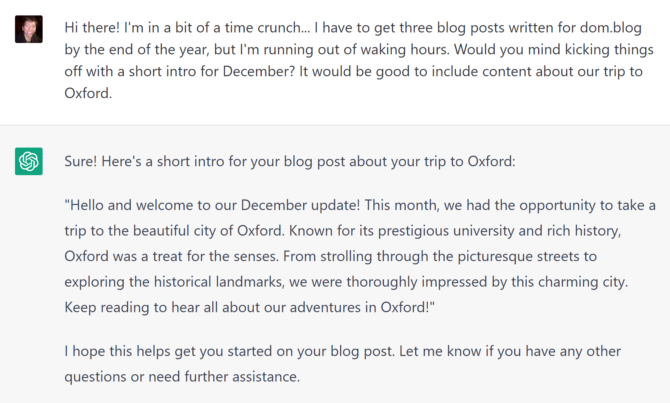
In terms of tone and style I’d say it’s basically there.
Content-wise, however, this human still has a bit to add, starting with the extraordinarily generous wedding present we received of an overnight stay (and seven-course dinner!) at Le Manoir aux Quat’Saisons in Oxfordshire. A surprising number of people seem to be familiar with this luxury boutique hotel, and even I had heard of Raymond Blanc. Suffice to say, it’s not the sort of place that Randi or I would ever dream of eating or sleeping at, so having received this gift we decided to make the most of the weekend by travelling up to Oxford on Friday night and exploring a little more of the city first before our check-in to Le Manoir on Saturday afternoon.

I’ve been to Oxford a few times on short visits, but this time we roamed slightly further than the “picturesque streets” and “historical landmarks” (thanks, GPT3) of the city centre. In particular, we loved the picturesque winter vibes of University Parks, which were further enhanced by staying within the expansive grounds of St Hugh’s College, which Randi discovered offers its student accommodation as a relatively cheap bed for the night (at least during the holidays) and also throws in a hot breakfast in the dining hall the next morning. Would recommend.

Anyway – if you have infinite money, I’d also recommend Le Manoir because it was rather nice. The dinner itself was incredible, as you’d expect, but – just as importantly – our waiter made us both feel relaxed and was happy to chat about his experiences working there. My only regret was that by the end I was too full for the optional bonus cheese course. Fortunately we could opt for room service breakfast the next morning (plus the FT), which was carried in on an enormous tray and contained a number of bonus items which its bearer (correctly) judged would make “nice additions” to the meal. We agreed.

I do realise that you’re supposed to expect an ultra-luxury hotel to be nice but we still felt very grateful for everything we received there, including the warmth and friendliness of the staff. And I was also pleased that they weren’t so fancy to not stock a selection of nearby walks for us to pick from on Sunday morning, allowing us to walk off some of Raymond Blanc’s cooking by meandering along snowy country roads through various pretty villages before making our way back home again, ‘bon voyage’ bag in tow. (If this all feels a bit like an influencer post, I apologise. Standard disclaimer: we enjoyed a free stay at Le Manoir, but all thoughts, opinions and greedy bites of their complimentary lemon cake are my own.)
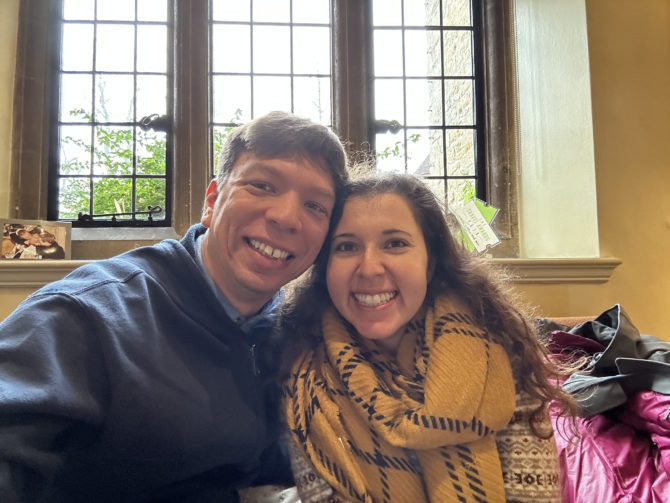
Back in the real world, December has been packed with fun stuff. While Randi was gallivanting in Edinburgh I went along to our neighbour’s primary school Christmas fair with Angela and her family, which was delightful (a) because I’d heard a lot about them already, and (b) because it’s hilarious how immediately recognisable any primary school hall is, from the climbing frame to the little red handheld beanbags.
I also spent a lovely morning in West Hampstead with Josh, Anna and Cora, attended a high-spirited work dinner (in which I learnt everything there is to know about Rutland) and chatted away merrily at the office Christmas party. Since my team is mostly outside the UK, we also enjoyed another virtual board game night to celebrate a productive and successful year (7 Wonders: Architects was particularly fun!) although, as usual, the only way to beat Kira is to choose a game like Ticket to Ride which she’s never played before… and even then, it was too close for comfort.

Meanwhile, Randi and I briefly hosted Esther on the first snowy night of December, who rather magnificently managed to arrive on the last train before they all stopped. One Sunday afternoon we also played at being proper grown-ups and went along to one of our neighbour’s Christmas gatherings for mulled wine, cheese and controversial cocktails. The couple who hosted have a good neighbourly track record, having successfully organised the installation of some bike storage along with the planting of some street trees earlier this year, and I’m really excited to see the latter grow next year.
But on top of all that, two huge pre-Christmas highlights of December were going to a couple of live shows! You’ve almost certainly heard of the first one, Six, in which the six wives of Henry VIII reclaim their narratives through an 80-minute musical/pop concert of catchy songs, historical revisionism and dirty jokes. I’ve wanted to see this for ages, ever since Spotify snuck one of the tracks into my Discover Weekly playlist, and it didn’t disappoint. The tone is fun and light-hearted – Hamilton this ain’t – but it really works, especially if you grew up in the British school system. And of course I’ve had the album on replay for the last week.
Even better, though, was A Sherlock Christmas Carol on Christmas Eve Eve. This is, as the name suggests, a mashup of Dickens and Sherlock Holmes, which is a sentence so laser-targeted at me that I bought tickets as soon as I read it without reading anything else. Everything is woven together perfectly, with some lovely touches to knit the universes together (the boy Ebenezer Scrooge pays at the end of A Christmas Carol to fetch the turkey for Bob Cratchit turns out to be a young Watson) and excellent performances from the cast throughout.
With the Christmas spirit well and truly unleashed, everything was set for our family’s annual gathering at my mum’s. As usual, we played games (Shout Out, Balderdash & Sushi Go Party) and continued our new morning tradition of Secret Santa on the big day itself (many thanks to Cormac for my gifts this year!), followed by a stupendous lunch at Carolyn’s, a format-bending edition of the infamous Christmas Quiz and a closing party game of Empires which Tash introduced us all to. The next day, my mum was inspired to make tacos for a Boxing Day brunch – if this turns out to be a new tradition, I’m definitely not complaining – before we set off for Hampstead Heath.
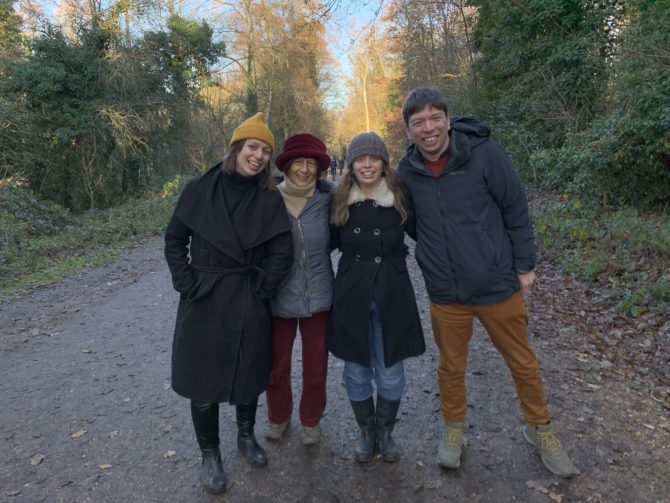
If you’re a regular reader – and let’s be honest, I don’t think anyone is picking up at this point – you’ll know that this is usually the week that I churn out my annual reviews and roundup of the year’s books. Everything was all planned out for a mammoth blog-writing session yesterday, with Randi having safely departed in an early morning cab for a solo trip to New York and Chicago to see friends. And then, in a single gatecrashing text, came some very exciting news: Nolan and Rebecca had just flown into town that very morning, and did I fancy a pint? Hell yes.
A few hours later we were gathered around a pub table in Camden with their wonderful friends Celia and Parrus, swapping life updates and lots of laughter after a multi-year gap. It may have cost me my blog writing timetable (and therefore some spillover into 2023 – sorry!) but it was worth it for such an unexpected and delightful reunion. I hope that you’ve all had a chance to spend some time with people you love over the holidays, and I hope you’ve enjoyed “our December update” for 2022.
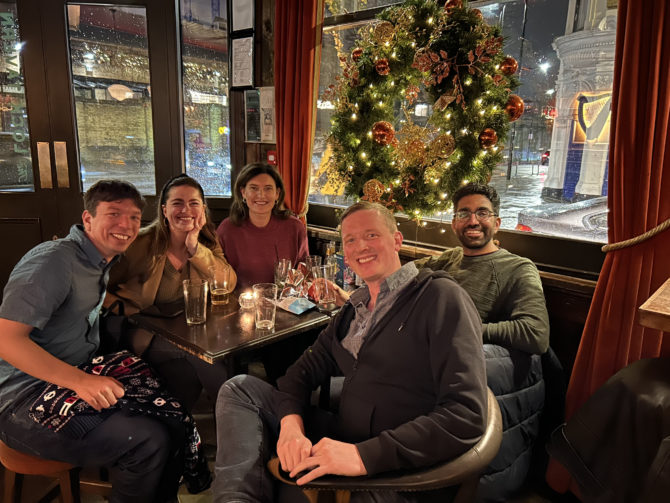
Belated Happy Thanksgiving! This year, we took advantage of Katie being in London to celebrate one weekend early, reuniting most of our 2019 Thanksgiving crowd for Randi’s menu of cheesy broccoli casserole, corn pudding and sumptuous mashed potato. And, in an autumnal twist to my ‘first mulled wine of the season’ ribbon-cutting moment, we also enjoyed a large pot of warming mulled cider as we gave thanks for things in alphabetical order and played some riotous rounds of Happy Salmon: the party card game where everyone plays (and yells) at once. My guess is that the playtesting of these games doesn’t consider first-floor terraced flats with neighbours in three of four directions – sorry! – but it’s Thanksgiving, and you gotta have fun on Thanksgiving.
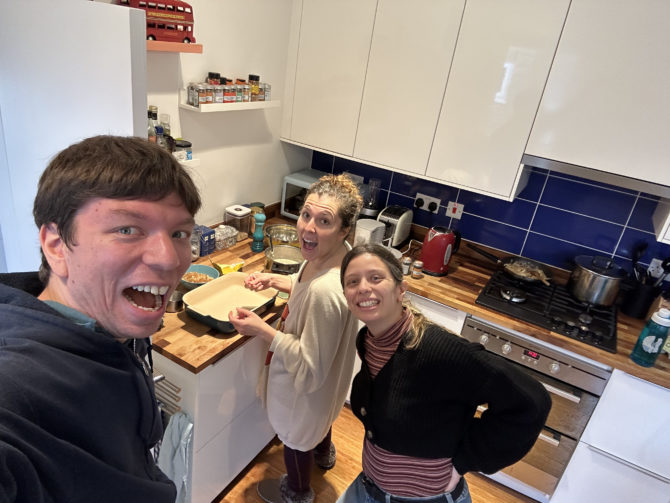
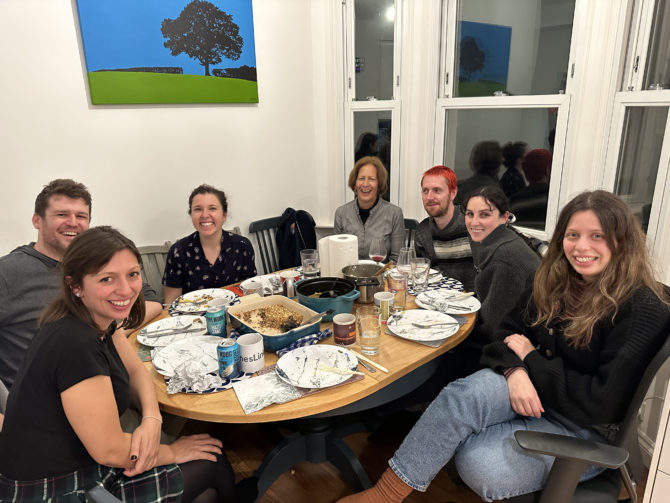
Katie stayed with us for a few more days, including the slightly surreal working hours where we worked together from the same home office. (While we didn’t get a chance to try switching jobs and seeing if anyone noticed, I can confirm that we both adopt the same unhealthily hunched position in an office chair. Not sure if this is a Tash thing too.) Aside from work, we also redeemed the Monopoly Lifesized tickets which Katie bought me for my birthday, and I’m delighted to say that – together with our team mates Andy and Jade, plus our ‘Scotty dog’ human Monopoly token – we came second out of four competing teams! Although, if we’re being honest, our purchase of the Gas Company should have immediately guaranteed victory in these troubled times.
In case you’re wondering how Monopoly Lifesized is actually played: although in theory there are escape room-esque challenges to complete on each board square in order to build property, in reality they are all pretty easy and the predominating spirit is really ‘zany novelty fun’ rather than anything very competitive. I really enjoyed it, and our meal in the Top Hat restaurant afterwards, although it does sadden me that Hasbro insist on repeating the false ‘Charles Darrow invented Monopoly’ story even though the true origin has been documented over and over again for decades now. And the true origin – it was invented by Elizabeth Magie as an economic satire and had a whole ‘anti-monopolist’ second set of rules – is just much more interesting than “some guy made it up for no reason”.

But the original reason for Katie’s visit was to go see Ingrid Michaelson’s Christmas concert. Through bitter misfortunes Katie has waited maybe half her life to see Ingrid Michaelson perform live, and we were eager to join her after an eight-year gap. (Wait, eight years? Really? That’s frightening.) Despite the fact that almost everything Katie told us about the gig was a lie (we could not buy drinks, there was no standing section, and it was not exclusively Christmas themed) we loved the show, which alternated between Ingrid classics – including the song we chose for our wedding ceremony – and festive songs.


Recently we also hosted Randi’s colleague Daniela for a sleepover, while I had another pub meetup with my uncle Andrew and attended the 2022 Travolution awards with some colleagues from work. (Props to the comedian Rhys James for making the most of a corporate awards gig.) And last weekend, I was very excited to make a rare outing to the cinema with Randi to see Glass Onion, the sequel to 2019’s Knives Out in which Daniel Craig returns as master detective Benoit Blanc. Massive thanks to Katie for tipping us off that Netflix had begrudgingly allowed a tiny theatrical release, because it’s a wonderful film and we both laughed a lot all the way through. Bring on the next one!

Finally, a confession: this year we broke the rule that you don’t get a Christmas tree before December. In our defence, Randi will be out of town just after Christmas, so she wanted to maximise her exposure while she was still around. And all of the preceding events in this post had already put us in a holiday mood. So, please forgive us. It’s also a particularly big specimen this year, which we didn’t fully appreciate until we got it home and realised the top was firmly out of Randi’s reach…
There’s one thing which beats a weekend minibreak, and that’s a weekend minibreak where someone else has already done all the planning. A few weeks ago, Caroline and Josh invited us to join a small group for the weekend in Whitstable. Airbnb all sorted, Saturday’s pub lunch booked months in advance: all we had to do was hop on the 18.16 from London Bridge on Friday night and relax. So we did!

Describing Saturday’s meal as a ‘pub lunch’ is a little misleading since, in fact, the main motivation for going to Whitstable was the five course tasting menu at The Sportsman pub. Not being a foodie – at least, not being the kind of foodie who would gravitate towards a Michelin starred restaurant, or even know how to pronounce girolles from the menu – I was a little nervous that the setting wouldn’t be for me. But, at the very least, I was excited to build my appetite with a long morning walk along the beach, with gorgeous (albeit alarming, given that it’s November) sunny weather and just the right kind of sea breeze to clear my head after our generous stocks of wine the night before during Articulate.
Happily, once we got to the pub it turned out that the vibe was warm and relaxed, with a delicious set of options (but not too many options!) for each course and some unexpected bonuses, including a series of modestly labelled ‘snacks’ and the much fabled pre-dessert course, which stretched out over about three and a half hours. It was glorious, and very filling, and not at all what you’d expect if you just passed by what looks like a half-forgotten sports pub on the coast.
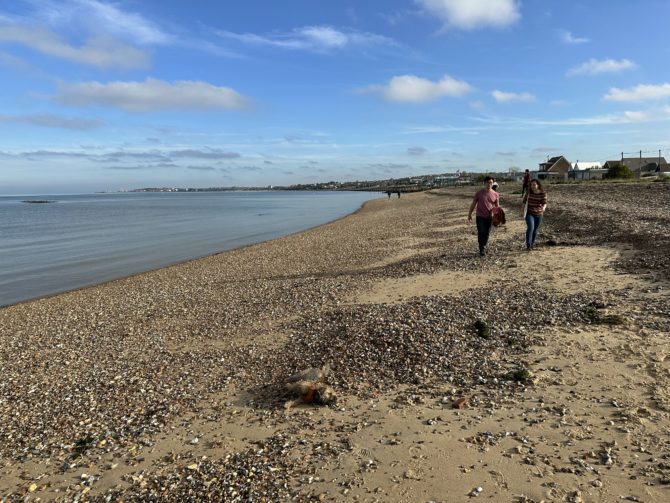
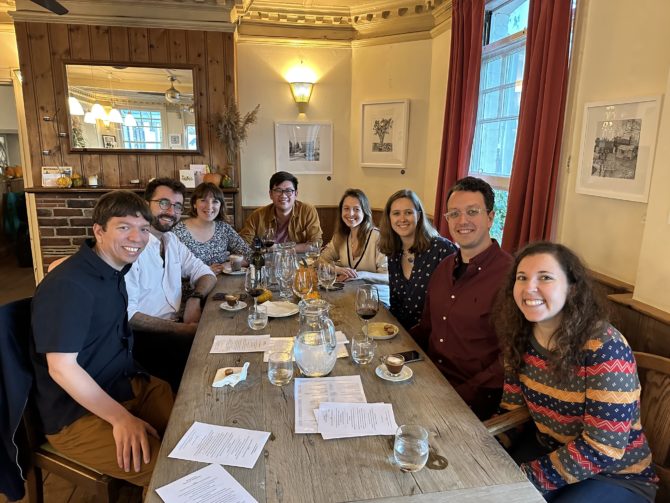
By the time we were done the sun was almost setting, so Randi and I popped back to the beach to watch and ended up chatting to a local photographer who needed a couple of volunteers to wander up and down the jetty and become silhouettes in the distance of his shots. We were happy to oblige. Back at the Airbnb, after learning a lot about the secret lives of architects, we settled down for a tense game of Trivial Pursuit, in which Caroline and I mostly failed to answer any of the history questions but, somehow, I could correctly name Run-DMC as the group which covered Aerosmith’s Walk This Way in 1986. (I have no idea how I dragged this out of my brain, but I’m still proud of it. Anyway, we still lost.)
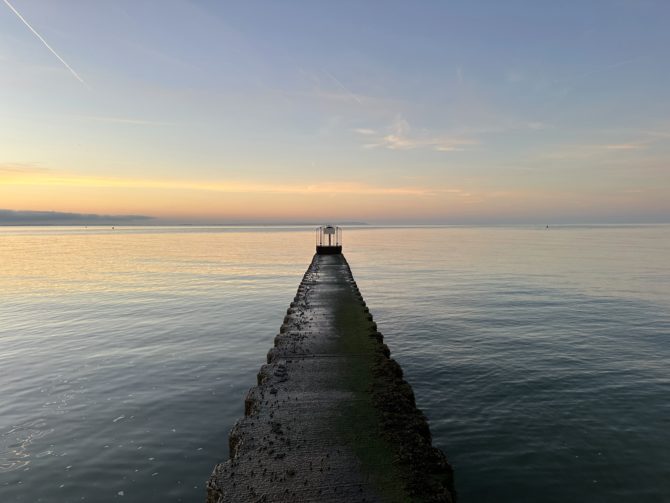
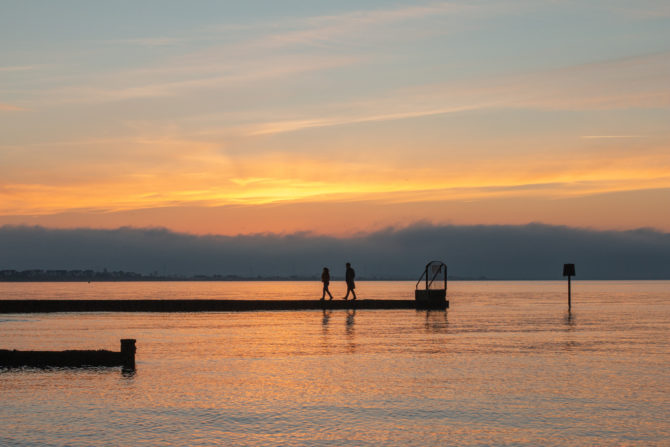
Did you know that seagulls will run on the spot as a sneaky technique to disorient the worms in the earth below, and so luring them to the surface with the vibrations? Probably you already did, but I didn’t, and it was part of a long seagull odyssey on Sunday morning which included a pair outside Whitstable Castle devouring the remains of afternoon tea – their beaks covered in clotted cream – with the exception of one of those small jars of jam which they couldn’t figure out how to break. After enjoying this performance we all meandered on to a seaside lunch before meandering through Whitstable and making our separate ways home. Whitstable weekend complete!

A weekend earlier, although we didn’t leave London we did manage to traverse it quite a lot, starting with Friday evening when we made our way all the way up to the Harrow Arts Centre for a ‘surprise night out’ which Randi had planned, which turned out to be the very funny comedian Chris McCausland. It was an unusual structure (or maybe it wasn’t, but I haven’t seen many stand-up gigs in person) whereby the first half was what you might call ‘normal’ standup: a reasonably enjoyable series of jokes and stories which weren’t all hits, but contained enough hits to be enjoyable. But he switched gears in the second half, with a very personal monologue on his blindness, and how it impacts his relationship with the world and especially his wife and daughter, which was both moving and thought-provoking. (Also, shout-out to his warm-up act, Jon Long, for gamely singing songs at the beginning about working at a rubbish tip and the running app Strava. I enjoyed them.)
The next night was Bonfire Night, and so once again we headed up north – very, very north, in London terms – to a fireworks display at Abi’s parents’ house. It was very nostalgic to walk the route from High Barnet station which I remember walking many times during the uni holidays, and equally nostalgic to be back at a real British fireworks party in which everyone huddles in the corner of someone’s back garden and watches in nervous anticipation as the rockets explode (or don’t), the Catherine wheels spin (or get stuck) and nothing burns down (despite multiple attacks on the trees and hedges) because it’s gently raining the whole time. And when we weren’t enjoying the spectacle – or running for cover – we were catching up with Oliver, Abi, Kat and baby Robin, who is wonderful.

Thankfully on Sunday we didn’t have to go anywhere except the Horniman museum – for the very first time! – and then the Honor Oak pub for a Sunday roast with Matt, Laura and Cress. It was the perfect, chilled-out, we-can-just-walk-home-afterwards end to the weekend, made all the better by the live music at the Honor Oak that afternoon which really brought out what’s best about the right kind of pub. Where else can you finish off your Yorkshire pudding before migrating over to the comfy sofas, sit back and sleepily relax while the local two year-olds dance together (or, more accurately, cautiously alongside each other) to some American roots music? Not in your typical bar, restaurant or café, that’s for sure. Hurray for the pub, whether Michelin starred or not.
Over my adult life I’ve noticed a gradual maturing of our country’s leaders, at least in terms of basic competence and capability. It’s still normal to want a refresh every few years, of course, but nowadays the incumbent usually bows out gracefully into a planned retirement – with a seamless transition so that nothing gets dropped in the shuffle – rather than a hasty switch because suddenly everything has broken. It’s good. It’s nice. It’s maybe a little bit boring, but I guess that’s the price you pay for stable prosperity.
Here, you can see it in these numbers over the lifetime of this blog:
| My Mobile Phone | Blog Posts | First Blog Post |
| Nokia 3510i (First Term) | 483 | April 2004 |
| Sony Ericsson T630 | 12 | August 2006 |
| Nokia 3510i (Second Term) | 30 | September 2006 |
| Nokia 6600 | 139 | January 2007 |
| Nokia 6300 | 229 | May 2008 |
| LG E900 Optimus 7 | 44 | June 2011 |
| Nokia Lumia 925 | 116 | August 2013 |
| iPhone 6S | 82 | April 2016 |
| iPhone XS | 117 | September 2018 |
Oh, wait, sorry. Did I say leaders? I meant phones. Here’s the right table:
| Prime Minister | Blog Posts | First Blog Post |
| Blair | 594 | April 2004 |
| Brown | 237 | August 2007 |
| Cameron | 233 | May 2010 |
| May | 116 | July 2016 |
| Johnson | 70 | July 2019 |
| Truss | 2 | September 2022 |
*shakes head sadly*
Anyway. Armed with a shiny new phone and therefore the potential to take slightly better photos than before (based on the table above, it’s probably been about a decade since my so-so photo composition became a bigger hindrance than any technology limitations) the main outing of the last few weeks was a family trip in Suffolk over what would have been my dad’s birthday weekend. My mum booked us all rooms in Bury St Edmunds – a place we know so well – and on Saturday afternoon we got mildy lost in Knettishall Heath before finding the perfect spot to scatter his ashes. I think he would have approved.
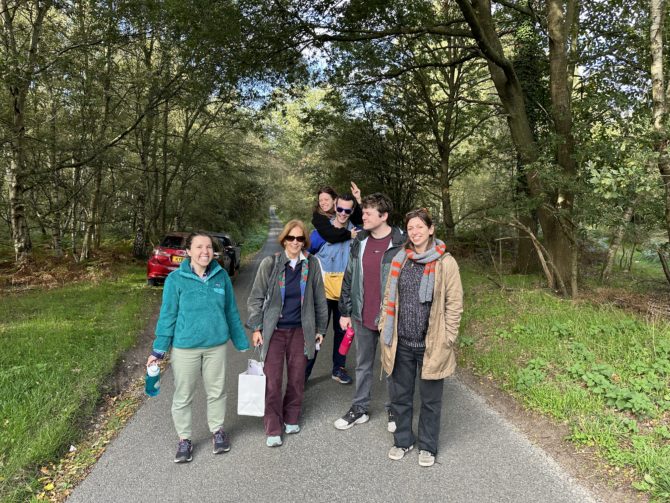
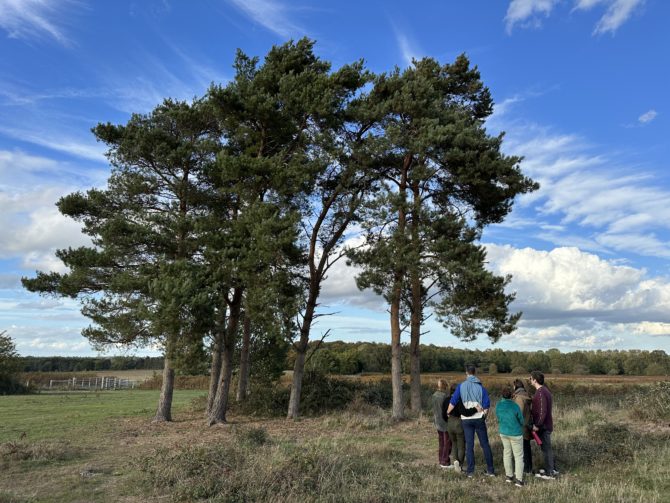
The next morning we played Sardines together in Abbey Gardens, which was an unreasonable amount of fun given that (a) I was stuffed with a breakfast fry-up, so running was a challenge (b) possibly as a consequence of (a) – at least that’s what I tell myself – I lost every time. Including the episode when I accidentally left the grounds themselves and ended up in the Premier Inn car park by mistake, which didn’t do much for my chances of finding anyone. Everyone else had to start doing louder and louder animal impressions to lure me over to the right place, traumatising several dogs and/or children in the process. Sorry, Bury St Edmunds!
Afterwards, since Randi and I were travelling by train, the two of us took advantage of the route home to hop out at Cambridge and bask in the gorgeous sunshine for the rest of the day. We wandered along the river, talked ourselves into Trinity (I mean, we didn’t lie, but the porters seemed to relax when I said I had gone to Caius on the basis that this was too obscure for a tourist to make up on the spot) and revisited the friendly Italian where we’d gone with her parents on our last trip before finally heading home.
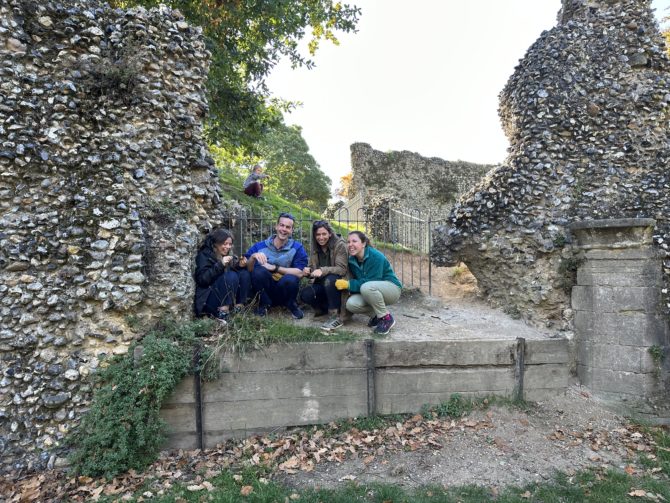
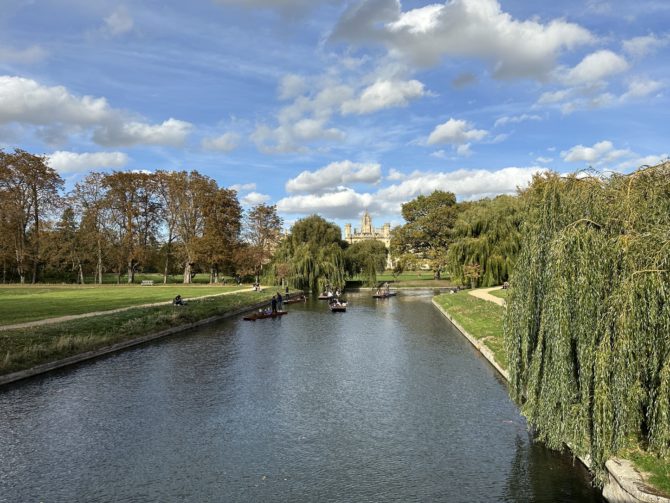
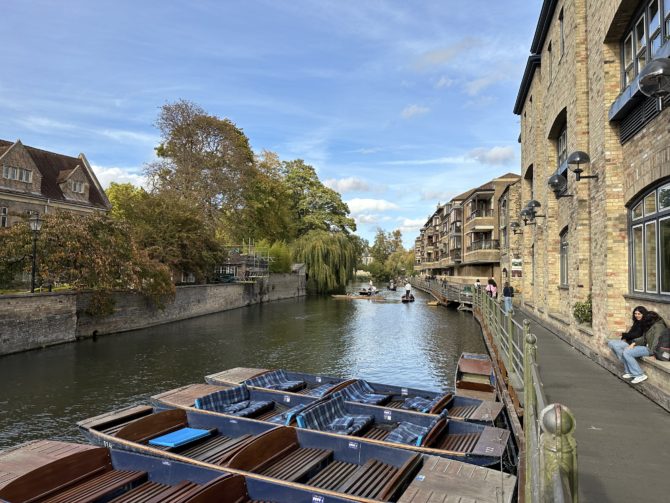
Jumping back in time slightly: a weekend earlier, Randi and I completed our second London Loop rewalk (much prettier than the first, and definitely easier when you have a vague memory of where you are) while in the following days I went on a splurge of actual face-to-face work meetups. Highlight: lunch at the Duck & Waffle, where we shook off the waiter’s instructions to share our food and all ordered our own ducks and waffles. Lowlight: probably the moment I ended up throwing two scoops of a collapsing ice-cream cone into Mohammed, like an exploding hand grenade searching for a target. Sorry about that.
We were also thrilled to be able to spend time with Jackie & Jeff on their visit to London – not once, but twice! On Thursday evening they ventured down to our neighbourhood, where I got a little carried away trying to speed march everyone up Blythe Hill but (hopefully) redeemed myself with dinner at Sparsh afterwords. The following night, we headed to my mum’s for a big family dinner to celebrate our continuing Glamily bonds.

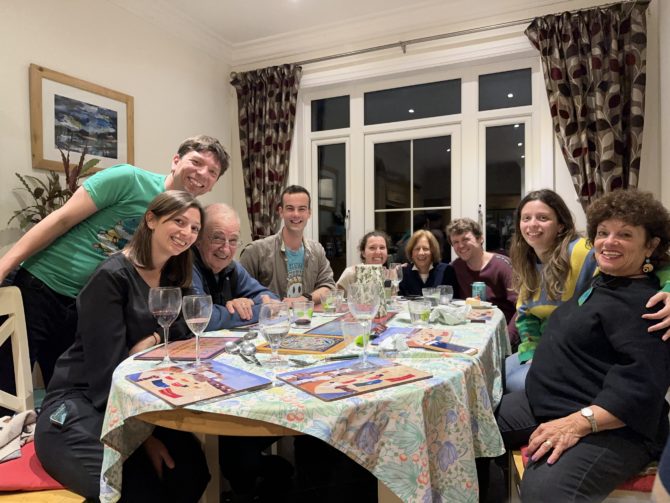
Having successfully persuaded my colleague Patricia and her husband Tarik to move somewhere within walking distance of us back in the summer, last weekend we reaped our reward by being invited over to play boardgames with them and some fellow Brazilians at their (really lovely) new flat. We started with Battlestar Galactica, and although we didn’t get very far I was excited to have been made a secret cylon (lifetime ambition achieved) and happy to bathe in nostalgia for the days when Katie and I would binge through season box sets and then stick competing BSG-themed posters on each other’s bedroom doors. Later we sped through many rounds of other bluffing games, Avalon and Coup, and I’m very proud of the moment when Randi and I were united in secret badness and successfully took down the group together. It’s the surest foundation of any relationship.
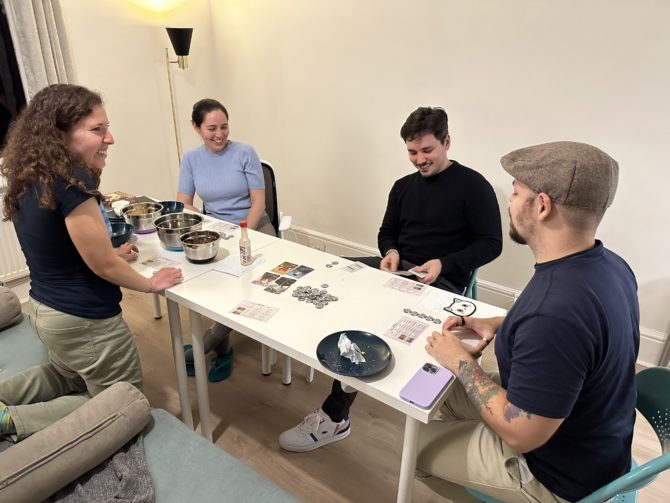
Continuing the nerdy theme, Sunday night was Doctor Who Special night and I thoroughly delighted in Jodie Whittaker’s epic swansong. The Power of the Doctor was filled with so much fan-based celebration that I’m not sure whether it really holds up on its own, but since – spoiler alert – we got to see a bunch of past Doctors and the greatest classic Who companion of all time (Ace, obviously!) donning her 80s jacket and dishing out the nitro nine explosives, I am really not complaining. Plus, Sacha Dhawan is just iconically good as the Master. He steals every scene that he’s in. This hasn’t been my favourite era of the show, writing-wise, but there’s always been a lot to like and I’m very, very excited about Russell T Davies coming back as showrunner next year.
(Tell you what though: nothing in this era was ever as bad as 1984’s The Twin Dilemma, the notoriously awful Colin Baker debut which Katie and I suffered through in our most recent Zoom-based Doctor Who Night. It’s not that it’s actually the worst-paced, or the worst-written, or the worst-acted. But, y’know, making the new Doctor a genuinely terrible person who tries to strangle his companion was not a good move.)
And a semi-related Doctor Who note: in an extreme installment of “Randi and I are very late to watch something”, we’ve just started watching the 1996 drama Our Friends in the North – starring Christopher Eccleston – after it was gifted by Randi’s former boss. It’s good! But intense. I’m not looking forward to the 1980s episodes.
I don’t think I’ve been that fannishly excited about Doctor Who on this blog for a while – because it hasn’t been on! – but in the meantime we’ll always have railways, and on Thursday night Randi and I made our inaugural trip to the long-awaited Bond Street station on the Elizabeth Line, which finally opened on 24th October. We were already drunk on pasta and wine by the time we got there – having stopped first at Padella to celebrate work things – but it was nice to see. “It’s OK… for London” scoffed a random stranger outside the entrance, whose opinion we hadn’t asked. “I mean, in comparison to the Northern line. That’s terrible.” Some real-life random comment trolling!

